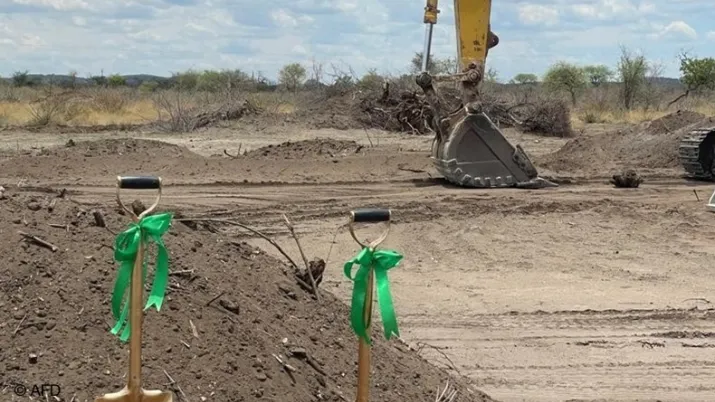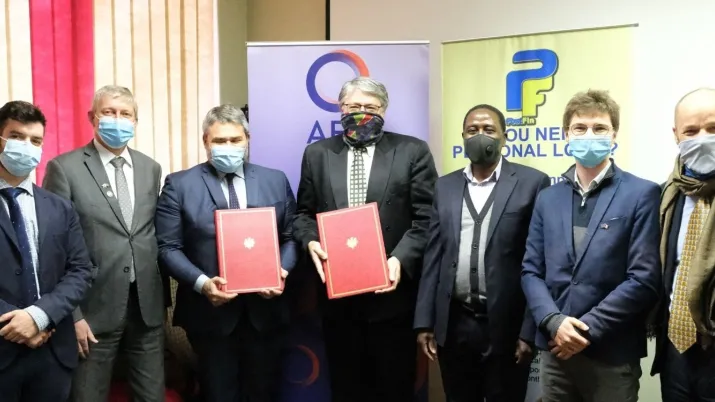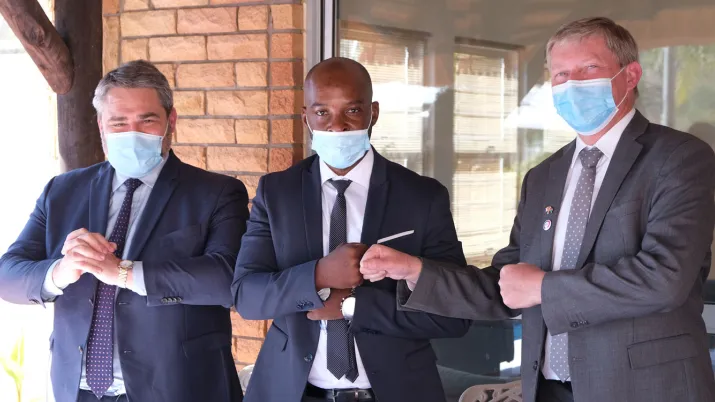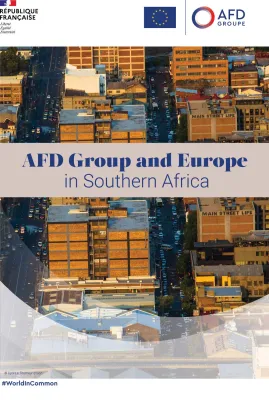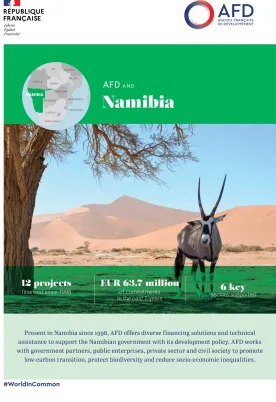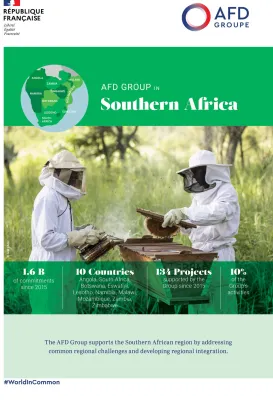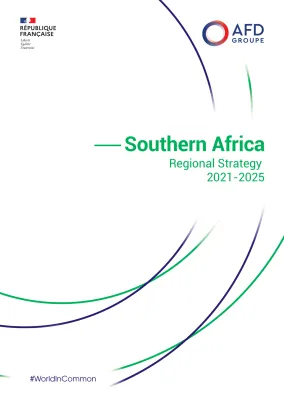Share the page
Namibia
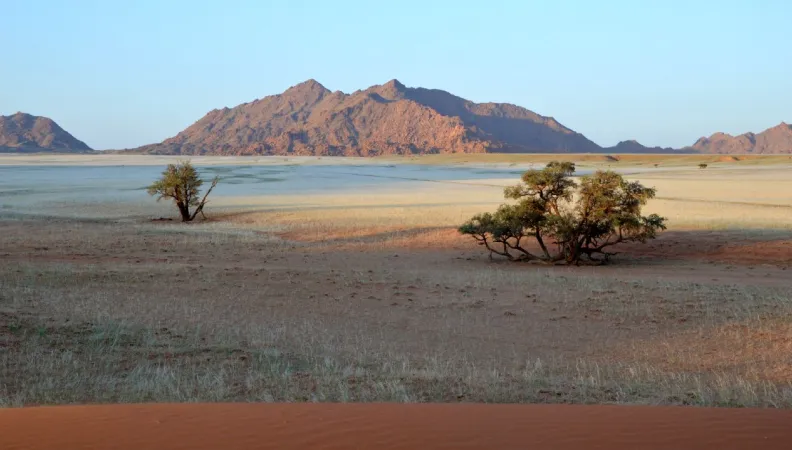
Present in Namibia since 1998, AFD offers diverse financing solutions and technical assistance to support the Namibian government with its development policy. AFD works with government partners, public enterprises, the private sector and civil society to promote a low-carbon transition, protect biodiversity and reduce socio-economic inequalities.
Context
After a long struggle for independence, the Republic of Namibia was officially proclaimed in 1989, following democratic elections held the same year. A vast country (one and a half times the size of France) with an extremely low population density (three inhabitants per square kilometer), Namibia has around 2.5 million inhabitants. Bordered by the Atlantic Ocean, it shares frontiers with South Africa, Botswana, Zambia and Angola.
Largely covered by desert, Namibia contains the driest zone in sub-Saharan Africa, and recurrent droughts make water a scarce resource. Although less than five percent of its territory is arable, the country has significant mineral resources, notably diamonds and uranium, which make mining a major economic sector. The fishing industry, one of the most productive in the world, is another important source of income and employment.
Despite its political and economic stability, Namibia faces major social challenges: high levels of inequality (the second most unequal country in 2015 according to the Gini index), a high unemployment rate (25 percent of the labour force) and a significant prevalence of HIV (11.5 percent among people aged fifteen to forty-nine in 2019). Yet it remains one of the few countries in sub-Saharan Africa that provides and maintains a social safety net for older people, persons with disabilities, vulnerable children and war veterans.
With a unique natural heritage, Namibia was the first country in the world to integrate environmental protection into its constitution. Nearly six percent of its territory is designated as protected areas, including the coastline of the Namib Desert.
AFD has been active in the country since 1998, offering a range of financing solutions and technical assistance to support the Namibian government’s development agenda. AFD works with a wide array of partners (government, public enterprises, the private sector and civil society) to advance a low-emission transition, protect biodiversity and reduce socio-economic inequalities.
AFD's Namibia office is directly attached to the Southern Africa regional office in Johannesburg.
Our approach
AFD and Namibia: Promoting low-carbon infrastructure to protect biodiversity and revitalize the economy
Due to the limited number of domestic power plants, Namibia imports up to 70% of its electricity from neighboring countries. This electricity is predominantly generated using coal, but the country has the capacity to capitalize on renewable sources of energies. This fact, combined with the intense exploitation of Namibian soils through agriculture, highlight the need to consolidate the sustainable use of natural resources.
To address these challenges, AFD launched SUNREF in 2017, a program designed to help local businesses to green the Namibian economy. Three local banks received a 15-million euro line of credit each to finance projects in the fields of Renewable Energy, Sustainable Agriculture and Tourism. Banks and project sponsors also benefit from one million euros' worth of technical assistance, financed by the Environmental Investment Fund of Namibia to develop profitable green projects.
Access to finance is not only an issue for green businesses. It is also a challenge for vulnerable populations who remain excluded from the traditional banking system. The 150,000 Namibian pensioners are particularly vulnerable as they receive their pension in cash, and are not considered as bankable by most of the financial institutions. Therefore, AFD supports the growth of PostFin, a subsidiary of the national postal operator dedicated to microfinance and savings products to low-income populations. This support constitutes a 14.3 million-euro non-sovereign loan in local currency, of which 50% is provided to pensioners.
After successive years of growth, the economy of Namibia has been in recession since 2017 and is increasingly vulnerable to the effects of the Covid-19 pandemic. In response, the authorities have implemented various fiscal and structural reforms to spur economic activity and growth. One of these measures is the promotion of Public Private Partnerships (PPP). To support the government, AFD is bringing international expertise through a 400,000-euro grant to the Ministry of Finance in the identification of achievable projects and the delivery of training sessions.
Namibia also seeks to reduce Public Enterprise debt, which amounted to 25% of GDP in 2018. Following the adoption of the Public Enterprises Governance Act, the authorities encourage the financial autonomy of Commercial Public Enterprises, which are supposed to generate their own revenue, but are still receiving allocations from the national budget. To address this issue, AFD signed a 500 000-euro grant agreement to bring Technical Assistance to the Ministry of Public Enterprises.
Finally, AFD is financing a technical cooperation program between Namport and the French Port of Dunkirk, worth a total of €650,000. By encouraging peer-to-peer exchanges and financing consulting services, this project seeks to improve its financial and technical performances from a regional and international perspective while bringing expertise for the implementation of a “green port strategy”.
Namibia’s diverse biodiversity has the potential to provide significant economic benefits to the population, not least through tourism revenue. To support the efforts of the authorities, AFD co-finances the Sustainable Wildlife Management (SWM) project, an initiative of the African, Caribbean and Pacific Group of States, coordinated by FAO and funded by the EU. Through a 3.5 million-euro grant signed in 2020 with FAO, AFD supports the extension of this project from Zambia and Zimbabwe to Namibia and Botswana.
Despite the sound management of its natural resources, Namibia remains particularly exposed to climate change. It is considered the driest country in Southern Africa. To increase access to knowledge and strengthen the capacity of the Namibian Government in water management and drought control, AFD approved a 450,000-euro grant to finance technical cooperation between the French geological survey (BRGM), the Ministry of Agriculture, Water and Land Reform (MAWLR) and the Ministry of Environment, Forestry and Tourism (MEFT).
The Covid-19 pandemic has directly hit organizations devoted to conservation in Namibia through a sudden halt to tourism and hunting activities, which represent more than 90% of their revenues. This situation highlights the need for conservationists to pursue a more diversified portfolio of income generating activities. In this context, AFD has signed a 200,000-euro grant with the Environmental Investment Fund in order to design an innovative national Payment for Ecosystem Services mechanism.
In the field
Publications & Media
Key figures
-
12 Projects financed since 1998
-
63.7 million euros of commitments in the past 5 years
-
6 key sectors supported

